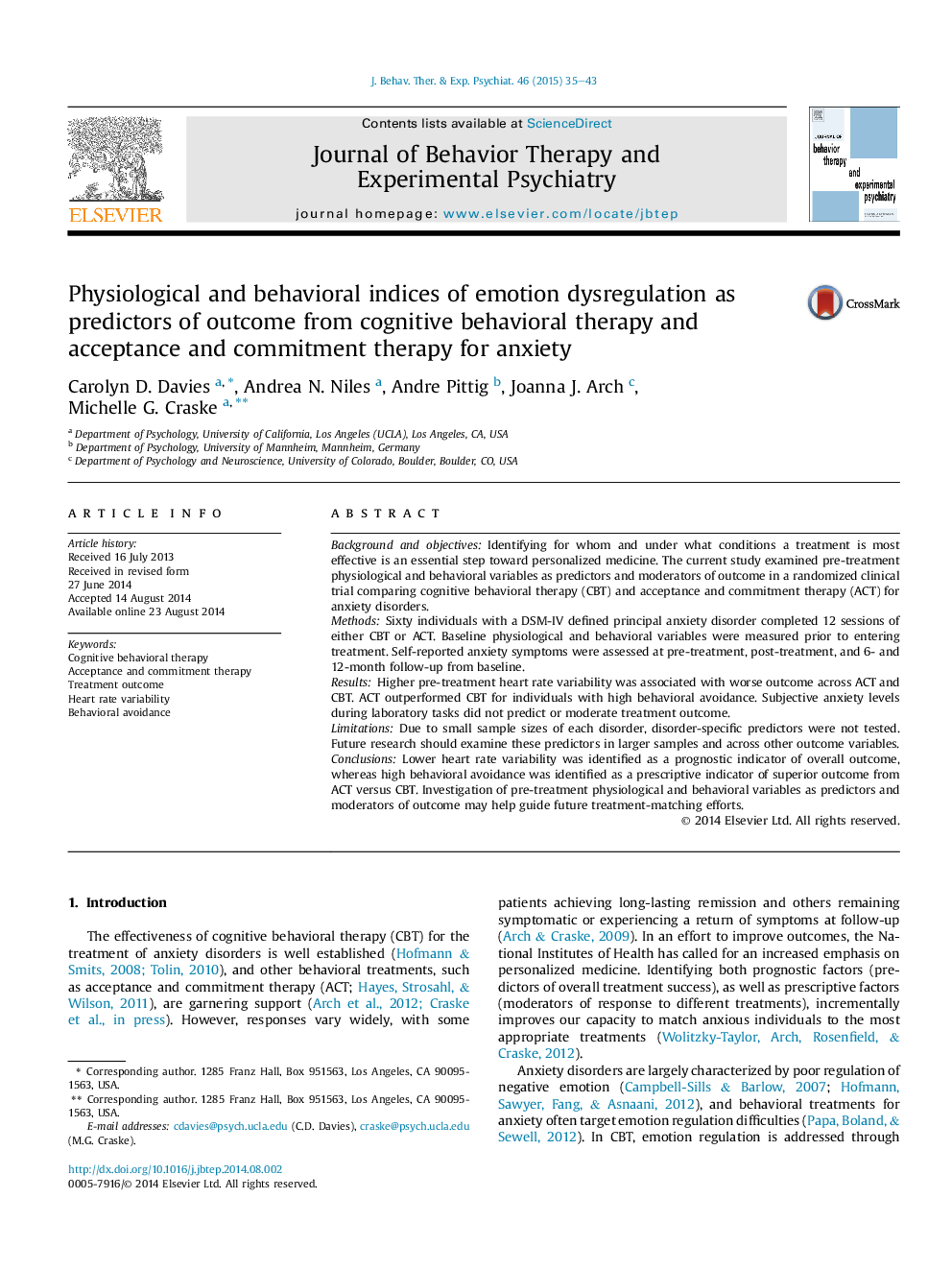| کد مقاله | کد نشریه | سال انتشار | مقاله انگلیسی | نسخه تمام متن |
|---|---|---|---|---|
| 910340 | 1473069 | 2015 | 9 صفحه PDF | دانلود رایگان |
• Individuals with anxiety disorders received 12 sessions of ACT or CBT.
• Pre-treatment physiological and behavioral predictors of outcome were examined.
• Higher heart rate variability predicted poorer overall outcome.
• Greater behavioral avoidance predicted better outcome from ACT than CBT.
Background and objectivesIdentifying for whom and under what conditions a treatment is most effective is an essential step toward personalized medicine. The current study examined pre-treatment physiological and behavioral variables as predictors and moderators of outcome in a randomized clinical trial comparing cognitive behavioral therapy (CBT) and acceptance and commitment therapy (ACT) for anxiety disorders.MethodsSixty individuals with a DSM-IV defined principal anxiety disorder completed 12 sessions of either CBT or ACT. Baseline physiological and behavioral variables were measured prior to entering treatment. Self-reported anxiety symptoms were assessed at pre-treatment, post-treatment, and 6- and 12-month follow-up from baseline.ResultsHigher pre-treatment heart rate variability was associated with worse outcome across ACT and CBT. ACT outperformed CBT for individuals with high behavioral avoidance. Subjective anxiety levels during laboratory tasks did not predict or moderate treatment outcome.LimitationsDue to small sample sizes of each disorder, disorder-specific predictors were not tested. Future research should examine these predictors in larger samples and across other outcome variables.ConclusionsLower heart rate variability was identified as a prognostic indicator of overall outcome, whereas high behavioral avoidance was identified as a prescriptive indicator of superior outcome from ACT versus CBT. Investigation of pre-treatment physiological and behavioral variables as predictors and moderators of outcome may help guide future treatment-matching efforts.
Journal: Journal of Behavior Therapy and Experimental Psychiatry - Volume 46, March 2015, Pages 35–43
